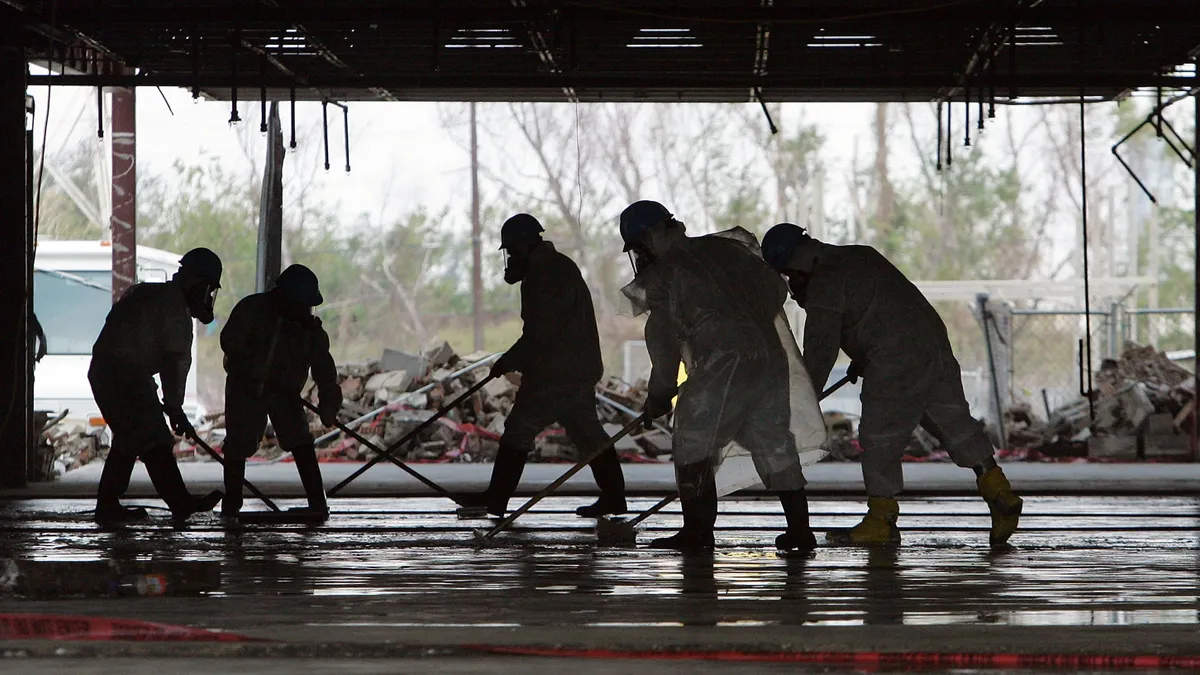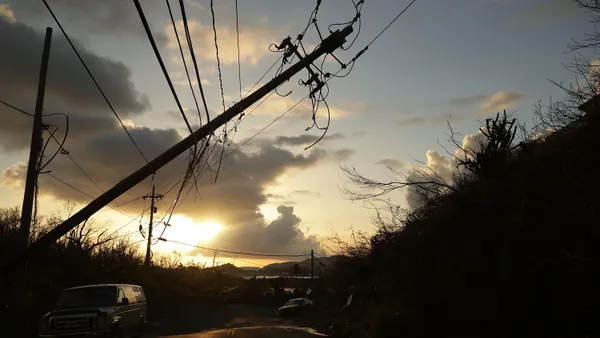Dive Brief:
- AECOM has agreed to pay $11.8 million to resolve allegations that it knowingly submitted false claims to the Federal Emergency Management Agency for the replacement of educational facilities in New Orleans damaged by Hurricane Katrina in 2005, according to an Oct. 24 Department of Justice news release.
- The DOJ alleged the Dallas-based firm violated the False Claims Act in its role as a technical assistance contractor supporting FEMA’s disaster recovery efforts between 2007 and 2013. FEMA paid AECOM more than $300 million to help institutions prepare estimates of the damage Katrina caused in order to qualify for federal public assistance grants.
- The DOJ alleged in a 2016 lawsuit that AECOM systematically used inflated repair estimates and other false information to get FEMA to pay out more money than claimants were entitled to. The claims resolved by the settlement are allegations only, and there has been no determination of liability, according to the DOJ release.
Dive Insight:
The settlement resolves claims that former AECOM project manager Robert Romero brought in the 2016 lawsuit under the False Claims Act’s whistleblower provisions, which permit private parties to file suit on behalf of the U.S. and share in a portion of the government’s recovery.
AECOM denies the government’s assertions and said no funds in question were directed to it, and it is proud of the rebuilding work it did in Louisiana.
“AECOM expressly denies any liability or wrongdoing relating to our work in New Orleans following Hurricane Katrina,” said AECOM spokesperson Jason Marshall in an email. “To avoid the expense and distraction of litigation related to events that occurred more than 15 years ago, AECOM has agreed to pay the government a small fraction of the damages it sought.”
The DOJ’s case alleges an AECOM project officer deployed to Louisiana allegedly misrepresented several New Orleans educational facilities’ repair versus replacement costs, which led the institutions to receive funds exceeding what FEMA’s regulations allowed. The public assistance funding was designated to repair damages unless the repair cost surpassed 50% of the replacement cost; in that scenario, funding was granted to fully replace the facility.
The fraudulent claims include “damage to non-existent concrete building foundations and fictitious basements, systematic inflation of cost estimates for damaged items, inflation of building square footage and submission of fraudulent damage photographs downloaded from the internet,” the suit said.
AECOM supervisors reviewed and did not correct disaster assistance applications that included materially false design, damage and replacement eligibility descriptions, according to the allegations in the government’s complaint.
“FEMA plays an essential role in helping communities recover from natural disasters,” said Principal Deputy Assistant Attorney General Brian M. Boynton, head of the Justice Department’s Civil Division. “Today’s settlement sends a strong message that FEMA contractors, as well as funding recipients, must provide truthful and accurate information so that FEMA’s resources are used to help those truly in need.”
The feds previously reached settlements with Xavier University of Louisiana and the Roman Catholic Archdiocese of New Orleans concerning their alleged participation in the false claims AECOM allegedly orchestrated, bringing the recovered funds to nearly $25 million total.
This article has been updated with comments from AECOM.













